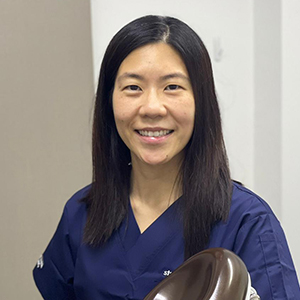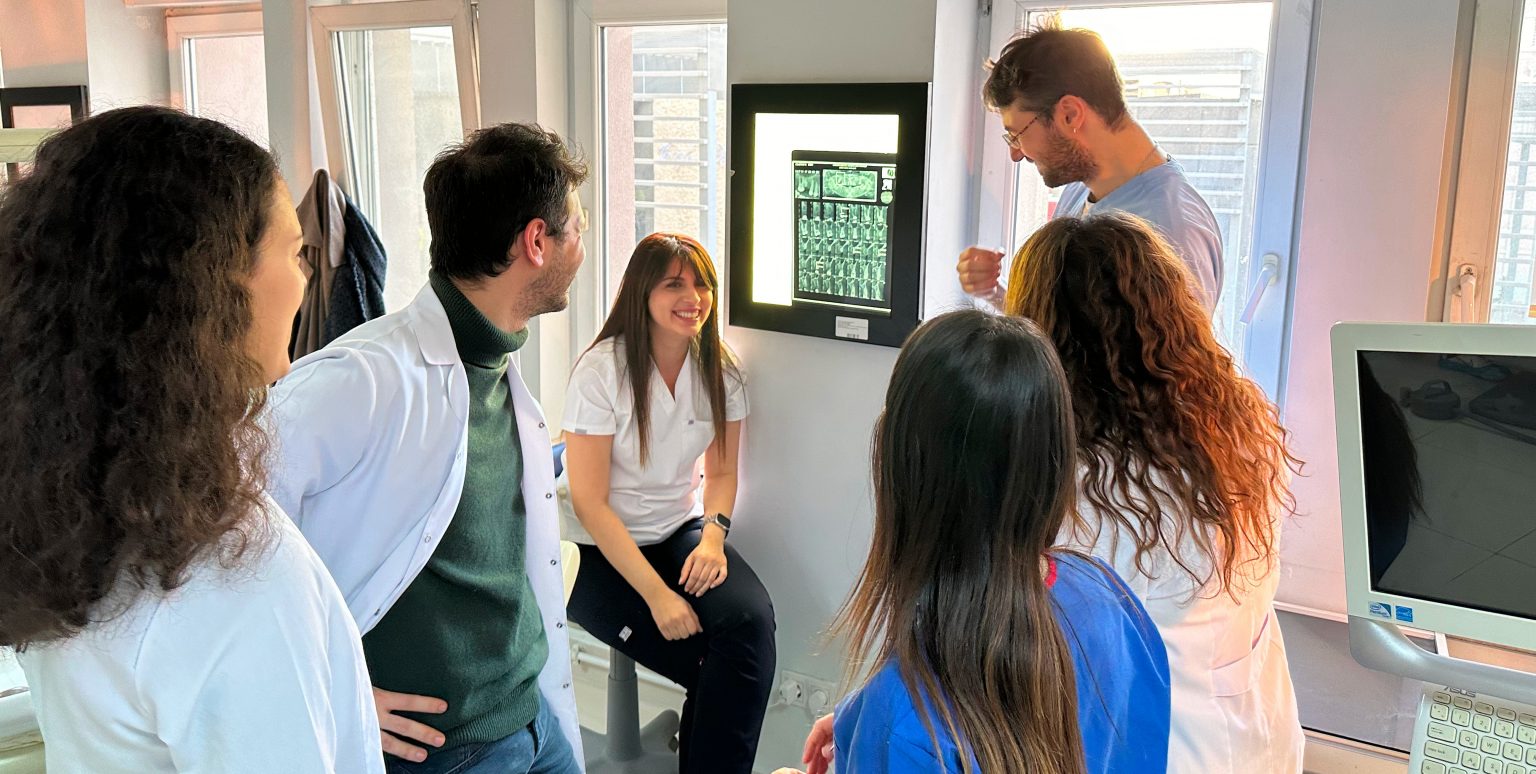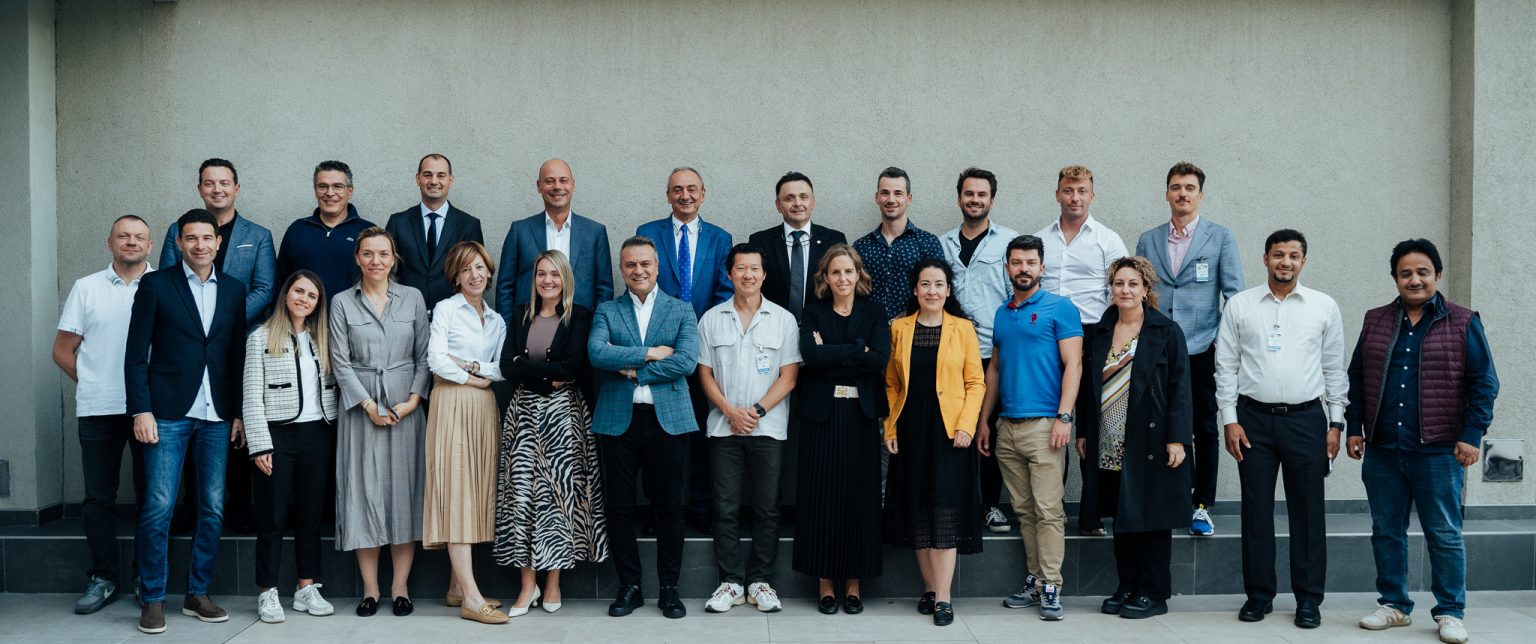The first cycle of the new Dental Practice Management (DPM) course is almost finished. We asked one of our participants, Wah Lay Tan from Singapore, what she thinks about this educational program in general and the course section on “Influence and Patient Care”.
The Dental Practice Management (DPM) course is slowly coming to an end. How is it going for you in general?
The course has been very educational for me and I have enjoyed it thus far. To be honest, initially I struggled to get my head around some of the technical terms, but as the course progressed, everything definitely came together better. The course has given me insight into what managing a dental practice will entail, and has definitely highlighted to me that there are so many aspects to consider in order to manage a dental practice successfully.
You provided very detailed feedback on the “Influence and Patient Care” course section. Did this part of the course make you reflect on how you connect with patients and give you more ideas how to do so?
The course made me realize that I was routinely using influencing tactics during routine communication with patients, but was just not very aware of it. Regardless, I have gained new insights on how to apply them more efficiently and appropriately.
During consultations with patients, I generally dislike delivering bad news (like informing patients that a tooth is hopeless to treat and will need to be extracted, or that a tooth will need more than a filling and hence the required treatment cost is far more than initially expected, etc.), for fear that the patient will get upset. With the assistance of learnings that I picked up from this course, I now understand that some patients actually appreciate unambiguous framing of the problem at hand and focusing on the process to prevent the same problem from reoccurring in the patient’s other teeth. This can also be a good way for me to involve the patient in his or her dental care, by suggesting small commitments like cleaning their teeth daily, or wearing an occlusal splint nightly, etc. Instead of focusing on the negatives of what clearly cannot be undone, it is better to pivot and help the patient focus on what can be done to improve the situation and prevent further similar issues in the future.
Let’s be clear, I still dislike delivering bad news, but I now have less trepidation and more confidence that there will be a more positive outcome. I have to be honest though, it’s much easier when the patient likes and trusts you, but this is on the proviso that you have developed a relatively good relationship, which may take time to build up.
Are the course learnings something that you can apply in daily practice for yourself and your staff?
Absolutely! The early part of this module focused on helping me understand my own personality traits (i.e., extraversion, agreeableness, openness, conscientiousness, need for stability) and how they influence my behavior; it was very intriguing.
I can now appreciate the importance of recognizing personality traits, as they influence our decision making and team-leading style; by recognizing strengths and weaknesses in each personality trait, I can then ensure that I have key people in my team with strengths in areas where I am lacking.
I especially found the lectures on intrinsic motivation very useful and how, given the right conditions, we can bring about lasting change. I am experimenting to see if I can apply these teachings to myself.
It was also eye-opening to see the research showing how a manager’s behavior can directly impact his or her subordinates’ chances of success or failure; this will definitely require all stakeholders in management positions within the practice to reflect, adjust and improve where they have fallen short.
Will this part of the course have an effect on the way you practice?
I am mostly happy with the way I practice, but interacting with my peers through the numerous discussions throughout the course has also provided many useful tips that I will try to apply at work.
Listening to patients and colleagues is something that I will aim do more, as that is the basis for the start of good communication. I have also learnt the importance of context when communicating with others and trying to effect change; we have to know what motivates the person, how confident that person is of bringing about the change, and if he or she can persevere to bring about the change, then try to assist the person by offering support and incentives.
Why do you think this part of the DPM course is particularly important to practice owners?
At the end of the day, we have to recognize that running a dental practice is not only about providing dental service; the day-to-day interactions we have with our patients and colleagues are vital to keep a practice running smoothly, and then, of course, to keep it profitable. I am glad that, beyond the financial statements of the previous module, this module has addressed the psychological component of day-to-day dental practice management. I vividly remember a professor in dental school telling us that dentists are not just dentists, but also wear the hats of a confidant as well as a part-time sounding board – how true these words are!
In 2020, the ITI teamed up with IMD Institute for Management Development – a globally top-ranked provider of executive education – to offer dental practitioners a customized, online dental practice management course that will help them to maximize their business impact. The course comprises the three fundamental components of every successful practice: Business Insights, Leadership Insights & Marketing & Customer/Patient Centricity.
In September 2021, the ITI is offering a second course cycle for practice owners and anyone looking to open a practice to pick up valuable know-how.






